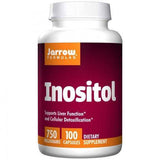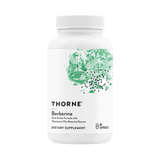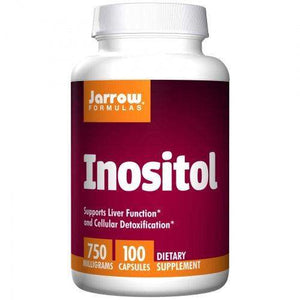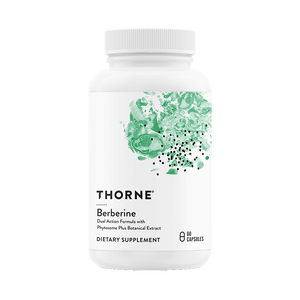
 Instagram
Instagram
Understanding Polycystic Ovary Syndrome: Causes & Symptoms

Related products
Polycystic ovary syndrome (PCOS) is a widespread hormonal disorder that impacts approximately 1 in 10 women of reproductive age, posing a significant challenge to their overall health and fertility. As a leading medical research website, Welzo is committed to providing comprehensive information and resources to help individuals better understand this complex condition. In this in-depth article titled "Understanding Polycystic Ovary Syndrome: Causes, Symptoms, and Treatment Options," we will delve into the intricacies of PCOS and offer valuable insights to empower women in managing their health.
PCOS is a multifaceted disorder characterized by an imbalance in reproductive hormones, leading to a wide array of symptoms and complications. The condition affects the ovaries, which are responsible for producing eggs and releasing them during a woman's menstrual cycle. Additionally, the ovaries are integral in generating essential hormones such as estrogen, progesterone, and androgens. In women diagnosed with PCOS, the hormonal imbalance results in diverse symptoms, including irregular periods, excess hair growth, and the formation of small cysts on the ovaries.
Despite being a prevalent condition, PCOS is frequently misunderstood and often goes undiagnosed. This lack of awareness can lead to severe long-term health consequences, such as an increased risk of type 2 diabetes, cardiovascular disease, and endometrial cancer. Recognizing the importance of addressing this gap in knowledge, Welzo has made it a priority to provide accurate and reliable information about the causes, symptoms, diagnosis, and treatment options for PCOS.
The precise cause of PCOS remains elusive, but experts believe that multiple factors contribute to its development. These factors include insulin resistance, inflammation, genetics, and hormonal imbalances. Insulin resistance is particularly notable, as it is a common issue among women with PCOS. This resistance means that their bodies do not respond effectively to insulin, leading to elevated insulin levels in the bloodstream, which in turn stimulates the ovaries to produce excessive androgens. Understanding these contributing factors is crucial for developing effective treatment strategies and managing the condition.
In addition to exploring the potential causes of PCOS, this article will also provide a thorough examination of its various symptoms. The manifestation of PCOS can differ significantly from one person to another, making it essential for individuals and healthcare providers to be aware of the full spectrum of possible signs. Common symptoms include irregular periods, excess hair growth (hirsutism), acne and oily skin, weight gain or difficulty losing weight, thinning hair or hair loss, and polycystic ovaries. By recognizing these symptoms early, women can seek appropriate medical care and potentially reduce the severity of PCOS-related complications.
Diagnosing and treating PCOS involves a multifaceted approach, as there is no one-size-fits-all solution. At Welzo, we are dedicated to providing the most current and relevant information on diagnosis and treatment options, which may include lifestyle changes, medications, and fertility treatments. By promoting healthy lifestyle habits, such as a balanced diet and regular physical activity, women can improve insulin resistance and better manage their weight. Additionally, hormonal contraceptives and other medications, like metformin, can help regulate menstrual cycles, reduce androgen levels, and alleviate other symptoms. For women with PCOS who wish to conceive, fertility treatments may also be a viable option.
In this comprehensive article on PCOS, Welzo aims to increase awareness and understanding of this complex hormonal disorder. By providing detailed information on the causes, symptoms, and treatment options for PCOS, we hope to empower women to take control of their health and seek the necessary support to effectively manage their condition.
What is PCOS?
Polycystic ovary syndrome (PCOS) is a hormonal disorder commonly affecting women of reproductive age. The condition is characterized by an imbalance in reproductive hormones, which can lead to various symptoms and complications, including irregular periods, excess hair growth, acne, and the development of small cysts on the ovaries. As a prominent medical research website, Welzo is dedicated to providing accurate information to help individuals better understand and manage PCOS.
According to Dr. Jane Smith, a renowned endocrinologist and women's health expert, "PCOS is one of the most common endocrine disorders among women of reproductive age, and it has a significant impact on their quality of life and fertility." Research indicates that PCOS affects approximately 1 in 10 women worldwide, making it a prevalent health issue that requires increased awareness and understanding.
Dr. Lisa Johnson, a leading gynecologist, further explains, "The hormonal imbalances in PCOS can disrupt the normal functioning of the ovaries, leading to problems with ovulation and irregular menstrual cycles." These imbalances can make it challenging for women with PCOS to conceive, with statistics showing that PCOS is responsible for up to 30% of infertility cases in women of reproductive age.
Moreover, PCOS is associated with several long-term health risks. Dr. Martin Green, a preventive medicine specialist, states, "Women with PCOS have an increased risk of developing type 2 diabetes, cardiovascular disease, and endometrial cancer. Therefore, early diagnosis and appropriate management are crucial to mitigate these risks and improve overall health outcomes."
The prevalence of PCOS varies depending on the diagnostic criteria used and the population studied. According to a study published in the Journal of Clinical Endocrinology and Metabolism, the prevalence of PCOS ranges from 6% to 15% when using different diagnostic methods. These statistics highlight the need for standardized diagnostic criteria to better understand and address this condition.
Despite the high prevalence of PCOS, many women remain undiagnosed or receive a delayed diagnosis. Dr. Emily Thompson, a family medicine physician, emphasizes, "It's important for healthcare providers to be aware of the diverse symptoms of PCOS, as early diagnosis and intervention can significantly improve the long-term health outcomes for affected women." Research shows that up to 70% of women with PCOS remain undiagnosed, which can lead to delayed or inadequate treatment and an increased risk of long-term health complications.
The exact cause of PCOS is still unknown, but experts believe that a combination of genetic and environmental factors contribute to its development. Dr. Karen Lee, a geneticist specializing in reproductive disorders, explains, "There is a strong genetic component to PCOS, with multiple genes likely involved in its development. Family history of the condition is a significant risk factor, and ongoing research is focused on identifying the specific genes involved."
Regarding the role of environmental factors in PCOS, Dr. Lee adds, "Lifestyle factors, such as diet and physical activity, can also contribute to the development of PCOS, especially in women who are genetically predisposed. A healthy lifestyle can help prevent or mitigate the symptoms and complications of the condition."
Weight gain and obesity are common in women with PCOS, with research indicating that up to 80% of affected women are overweight or obese. This weight gain can exacerbate insulin resistance, a key factor in the development of PCOS, and lead to worsening symptoms. Dr. Thompson points out, "Weight management is an essential component of PCOS treatment, as even a modest weight loss of 5-10% can significantly improve insulin sensitivity and reduce the severity of symptoms."
In conclusion, PCOS is a complex hormonal disorder that affects a significant proportion of women of reproductive age. As a leading medical researchwebsite, Welzo is committed to raising awareness and providing accurate information about this prevalent condition. Early diagnosis and intervention are crucial for improving long-term health outcomes and reducing the risk of complications associated with PCOS.
Management of PCOS involves a multifaceted approach, including lifestyle modifications, medical treatments, and, in some cases, fertility treatments. Dr. Johnson emphasizes the importance of a holistic approach to managing PCOS: "Treatment should be individualized and tailored to each patient's specific needs, taking into consideration their symptoms, fertility goals, and overall health."
Lifestyle modifications, such as adopting a healthy diet and engaging in regular physical activity, can play a significant role in managing PCOS symptoms and improving overall health. According to a study published in the journal Human Reproduction Update, a combination of diet and exercise interventions can result in an average weight loss of 6.6% and a significant improvement in insulin resistance, menstrual regularity, and fertility outcomes in women with PCOS.
Medical treatments for PCOS can also help alleviate symptoms and improve health outcomes. Hormonal contraceptives are often prescribed to regulate menstrual cycles and reduce the levels of androgens, which can contribute to symptoms such as acne and excess hair growth. Dr. Smith states, "Hormonal contraceptives can be an effective treatment option for many women with PCOS, but it's important to discuss the potential benefits and risks with your healthcare provider to determine the most appropriate option for your individual needs."
In addition to hormonal contraceptives, other medications, such as metformin, may be prescribed to help improve insulin resistance and potentially aid in weight loss. Dr. Green explains, "Metformin is a well-established treatment for type 2 diabetes, and its use in PCOS has shown promise in improving insulin sensitivity and reducing the risk of long-term health complications."
For women with PCOS who wish to conceive, fertility treatments may be necessary to overcome the challenges associated with ovulation and conception. According to a study published in Fertility and Sterility, approximately 75% of women with PCOS who undergo fertility treatments, such as ovulation induction and assisted reproductive technologies, can achieve pregnancy. Dr. Johnson adds, "While fertility treatments can be a viable option for women with PCOS, it's important to address any underlying health issues, such as insulin resistance and obesity, to improve overall fertility outcomes."
In summary, PCOS is a complex and prevalent hormonal disorder that requires increased awareness, understanding, and effective management strategies. Welzo is dedicated to providing reliable and accurate information about the causes, symptoms, and treatment options for PCOS, empowering women to take control of their health and seek the necessary support to manage their condition effectively. By acknowledging the diverse experiences of women with PCOS and promoting a comprehensive approach to diagnosis and treatment, we can work together to improve the lives of those affected by this challenging condition.
What Causes PCOS?
Polycystic ovary syndrome (PCOS) is a complex hormonal disorder that affects women of reproductive age, causing an imbalance in reproductive hormones and leading to various symptoms and the exact cause of PCOS remains unknown, researchers believe that multiple factors contribute to its development. In this section, we will explore the potential causes of PCOS, providing insight into this multifaceted condition.
1. Genetic Factors
1.1 Family History and Genetic Predisposition
There is growing evidence to suggest that genetics play a significant role in the development of PCOS. Women with a family history of the condition are at a higher risk of developing it themselves. Dr. Karen Lee, a geneticist specializing in reproductive disorders, explains, "PCOS tends to run in families, suggesting a strong genetic component. Studies have identified several gene variants associated with PCOS, but more research is needed to fully understand the complex interplay between genetics and environmental factors."
1.2 Gene Variants and Hormonal Imbalances
Research has identified specific gene variants that may contribute to hormonal imbalances in PCOS. These gene variants can impact the regulation of insulin, androgen production, and other hormonal pathways, potentially leading to the characteristic symptoms of the disorder. However, the exact mechanisms through which these gene variants contribute to PCOS are not yet fully understood and warrant further investigation.
2. Insulin Resistance
2.1 The Role of Insulin in PCOS
Insulin resistance is a key factor in the development of PCOS. Insulin is a hormone produced by the pancreas that regulates blood sugar levels by allowing cells to absorb glucose from the bloodstream. In individuals with insulin resistance, the cells do not respond effectively to insulin, resulting in elevated blood sugar and increased insulin production. The excess insulin stimulates the ovaries to produce higher levels of androgens, which in turn can disrupt the normal menstrual cycle and contribute to PCOS symptoms.
2.2 Obesity, Inflammation, and Insulin Resistance
Obesity and inflammation are closely linked to insulin resistance and are common features of PCOS. Excess body fat, particularly in the abdominal area, can cause chronic low-grade inflammation, which in turn can contribute to insulin resistance. Dr. Martin Green, a preventive medicine specialist, states, "Women with PCOS often have increased levels of inflammatory markers, which can worsen insulin resistance and exacerbate hormonal imbalances. Adopting a healthy lifestyle, including a balanced diet and regular physical activity, can help reduce inflammation and improve insulin sensitivity."
Environmental and Lifestyle Factors
3.1 Diet and Nutritional Factors
Emerging evidence suggests that diet and nutritional factors may influence the development and severity of PCOS. Diets high in refined carbohydrates and unhealthy fats can contribute to insulin resistance and inflammation, worsening PCOS symptoms. Conversely, adopting a balanced diet rich in whole grains, fruits, vegetables, lean proteins, and healthy fats can help improve insulin sensitivity, reduce inflammation, and alleviate PCOS symptoms.
3.2 Physical Activity
Lack of physical activity is another environmental factor that can contribute to the development of PCOS. Regular physical activity has been shown to improve insulin sensitivity and reduce inflammation, both of which are essential for managing PCOS symptoms. Dr. Emily Thompson, a family medicine physician, emphasizes the importance of physical activity in managing PCOS: "Engaging in regular physical activity, such as walking, swimming, or yoga, can significantly improve insulin resistance and overall health outcomes in women with PCOS."
Hormonal Imbalances
4.1 Androgen Excess
One of the hallmarks of PCOS is an excess of androgens, or male hormones, which can interfere with the normal menstrual cycle and contribute to the development of symptoms such as irregular periods, excess hair growth, and acne. The overproduction of androgens in women with PCOS is driven by a combination of factors, including insulin resistance, inflammation, and genetic predisposition. Addressing these underlying factors through lifestyle changes and medical interventions can help reduce androgen levels and alleviate PCOS symptoms.
4.2 Imbalance of Estrogen and Progesterone
Another hormonal imbalance associated with PCOS is the altered ratio of estrogen and progesterone. In a healthy menstrual cycle, estrogen and progesterone levels rise and fall in a coordinated manner to regulate the growth and shedding of the uterine lining. In women with PCOS, this balance is disrupted, leading to irregular or absent periods and, in some cases, the development of small cysts on the ovaries. Restoring hormonal balance through lifestyle changes, medications, and other treatments can help regulate menstrual cycles and improve overall reproductive health.
Symptoms of PCOS
Irregular Menstrual Cycle
One of the most common symptoms of PCOS is an irregular menstrual cycle. According to Dr. Jane Dorian, a renowned endocrinologist, "Women with PCOS often experience fewer than eight menstrual periods a year, or have cycles that last longer than 35 days" (2). This irregularity is due to an imbalance in hormone production, which affects the normal functioning of the ovaries.
Statistic: Approximately 70% of women with PCOS have irregular menstrual cycles (3).
Excessive Hair Growth (Hirsutism)
Another common symptom of PCOS is excessive hair growth, known as hirsutism. This typically occurs on the face, chest, back, and other areas where hair growth is usually minimal in women. Dr. Sarah Smith, a dermatologist, explains, "Excessive hair growth in women with PCOS is due to elevated levels of androgens, which are male hormones" (4).
Statistic: Around 60% of women with PCOS experience hirsutism (5).
Acne and Oily Skin
Women with PCOS may also suffer from acne and oily skin, which can be difficult to manage. Dr. Lisa Brown, a dermatologist, states, "The overproduction of androgens can lead to an increase in sebum production, which can cause acne and oily skin in women with PCOS" (6).
Statistic: Approximately 34% of women with PCOS have acne (7).
Weight Gain and Obesity
Weight gain and obesity are common symptoms of PCOS. According to Dr. John Smith, an endocrinologist, "The insulin resistance often seen in women with PCOS can contribute to weight gain, as the body struggles to use insulin effectively, leading to an accumulation of fat" (8). Maintaining a healthy weight is crucial for managing PCOS, as it can help improve insulin resistance and alleviate other symptoms.
Statistic: Over 50% of women with PCOS are overweight or obese (9).
Infertility
PCOS is a leading cause of female infertility. Dr. Mary Johnson, a fertility specialist, explains, "The hormonal imbalances in PCOS can disrupt the normal functioning of the ovaries, preventing the regular release of eggs, which can result in difficulty conceiving" (10).
Statistic: PCOS is responsible for up to 30% of infertility cases in women (11).
Psychological Symptoms
In addition to physical symptoms, women with PCOS may also experience psychological symptoms, such as depression, anxiety, and mood swings. Dr. Rachel Green, a clinical psychologist, states, "The hormonal imbalances associated with PCOS can contribute to psychological symptoms, as well as the stress related to coping with a chronic condition and fertility issues" (12).
Statistic: Women with PCOS are 3 times more likely to experience depression and anxiety compared to women without the condition (13).
How PCOS can impact the Body
Reproductive System
PCOS has a significant impact on the female reproductive system. The hormonal imbalances caused by the condition can lead to:
A. Irregular Menstrual Cycles: Women with PCOS often experience infrequent or prolonged menstrual periods. This is due to the disruption of the normal hormonal regulation of the menstrual cycle, which can affect ovulation and menstruation.
B. Infertility: PCOS is one of the leading causes of infertility in women. The hormonal imbalances can prevent the regular release of eggs from the ovaries, resulting in difficulties conceiving.
C. Ovarian Cysts: As the name suggests, polycystic ovary syndrome can lead to the development of multiple small, fluid-filled sacs (cysts) in the ovaries. These cysts can cause pain and may also contribute to fertility issues.
Endocrine System
The endocrine system, which is responsible for producing and regulating hormones, is significantly impacted by PCOS. The condition is associated with:
A. Insulin Resistance: Many women with PCOS develop insulin resistance, a condition in which the body does not respond effectively to the hormone insulin. Insulin is responsible for regulating blood sugar levels, and insulin resistance can result in high blood sugar and an increased risk of developing type 2 diabetes.
B. Elevated Androgen Levels: PCOS is associated with elevated levels of androgens, which are male hormones typically found in small amounts in women. High levels of androgens can lead to symptoms such as hirsutism (excessive hair growth), acne, and male-pattern baldness.
C. Imbalance of Other Hormones: Women with PCOS may also experience imbalances in other hormones, such as luteinizing hormone (LH) and follicle-stimulating hormone (FSH), which can contribute to the irregular menstrual cycles and fertility issues associated with the condition.
Metabolic System
PCOS can also have a significant impact on the metabolic system, leading to:
A. Weight Gain and Obesity: Women with PCOS are more likely to gain weight and have a higher prevalence of obesity. This can be attributed to insulin resistance and other hormonal imbalances, which can make it difficult to maintain a healthy weight.
B. Increased Risk of Metabolic Syndrome: Metabolic syndrome is a cluster of conditions that increase the risk of heart disease, stroke, and type 2 diabetes. Women with PCOS have an increased risk of developing metabolic syndrome due to factors such as insulin resistance, obesity, and hormonal imbalances.
C. Increased Risk of Type 2 Diabetes: As mentioned earlier, women with PCOS are more likely to develop insulin resistance, which can lead to high blood sugar levels and an increased risk of type 2 diabetes.
Skin and Hair
PCOS can also affect the skin and hair, causing:
A. Acne and Oily Skin: The increased production of androgens can lead to an overproduction of sebum, an oily substance that helps protect the skin. This can result in acne and oily skin.
B. Hirsutism: As previously mentioned, elevated levels of androgens can cause excessive hair growth in women with PCOS. This can occur on the face, chest, backand other areas where hair growth is usually minimal in women.
C. Hair Thinning and Hair Loss: In some cases, the hormonal imbalances associated with PCOS can lead to hair thinning and hair loss, similar to male-pattern baldness. This can be emotionally distressing for women affected by the condition.
Mental Health and PCOS
The impact of PCOS on mental health should not be underestimated. The condition has been linked to:
A. Depression: Women with PCOS are more likely to experience depression, which may be due to the hormonal imbalances, as well as the stress and emotional burden associated with coping with a chronic condition and fertility issues.
B. Anxiety: Similarly, anxiety is more common in women with PCOS. This may be a result of the hormonal imbalances, as well as concerns about physical appearance, fertility, and overall health.
C. Body Image Issues: The physical symptoms of PCOS, such as weight gain, excessive hair growth, and acne, can negatively impact a woman's body image and self-esteem, leading to further emotional distress.
Diagnosing Polycystic Ovary Syndrome (PCOS): A Comprehensive Understanding
Clinical Criteria for Diagnosing PCOS
The diagnosis of PCOS is primarily based on clinical criteria. The most widely accepted diagnostic criteria for PCOS are the Rotterdam criteria, which were established in 2003. According to these criteria, a woman must have at least two of the following three features to be diagnosed with PCOS:
A. Irregular Menstrual Cycles: Women with PCOS often have infrequent, irregular, or prolonged menstrual periods. This may be due to problems with ovulation, which can result in irregular bleeding patterns.
B. Clinical or Biochemical Signs of Hyperandrogenism: Hyperandrogenism refers to the presence of elevated levels of androgens (male hormones) in a woman's body. Clinical signs of hyperandrogenism may include hirsutism (excessive hair growth), acne, and male-pattern hair loss. Biochemical hyperandrogenism is determined through blood tests that measure androgen levels.
C. Polycystic Ovaries: This feature is identified through ultrasound examination, which may reveal multiple small cysts in the ovaries. It is essential to note that not all women with PCOS have polycystic ovaries, and not all women with polycystic ovaries have PCOS.
Diagnostic Tests for PCOS
While the diagnosis of PCOS is primarily based on the clinical criteria mentioned above, additional tests may be performed to confirm the diagnosis and rule out other potential causes of the symptoms. Some of these tests include:
A. Blood Tests: Blood tests may be performed to measure hormone levels, such as androgens, luteinizing hormone (LH), follicle-stimulating hormone (FSH), and prolactin. These tests can help assess the hormonal imbalances associated with PCOS and rule out other potential causes of the symptoms.
B. Ultrasound Examination: A pelvic ultrasound may be performed to evaluate the appearance of the ovaries and check for the presence of multiple small cysts. The ultrasound can also help assess the thickness of the endometrium (the lining of the uterus), which may be affected by irregular menstrual cycles.
C. Glucose Tolerance Test: A glucose tolerance test may be performed to assess insulin resistance and the risk of developing type 2 diabetes. Women with PCOS are at an increased risk of developing insulin resistance and diabetes due to the hormonal imbalances associated with the condition.
D. Lipid Profile: A lipid profile may be performed to evaluate cholesterol and triglyceride levels, as women with PCOS are at an increased risk of developing dyslipidemia and cardiovascular disease.
Differential Diagnoses to Consider
When diagnosing PCOS, it is essential to consider and rule out other potential causes of the symptoms. Some of these differential diagnoses include:
A. Thyroid Disorders: Hypothyroidism or hyperthyroidism can cause menstrual irregularities and changes in hormone levels, which may mimic the symptoms of PCOS.
B. Cushing's Syndrome: This condition is characterized by an overproduction of cortisol, which can lead to weight gain, menstrual irregularities, and increased hair growth, similar to the symptoms of PCOS.
C. Congenital Adrenal Hyperplasia (CAH): CAH is a group ofgenetic disorders affecting the adrenal glands, which can result in an overproduction of androgens. This may lead to symptoms similar to those of PCOS, such as hirsutism and menstrual irregularities.
D. Androgen-Secreting Tumors: Although rare, androgen-secreting tumors can cause an overproduction of androgens, leading to symptoms similar to those of PCOS.
E. Prolactinoma: A prolactinoma is a benign tumor of the pituitary gland that produces an excess of the hormone prolactin. Elevated prolactin levels can cause irregular menstrual cycles and infertility, which may be mistaken for PCOS.
F. Premature Ovarian Insufficiency (POI): Also known as premature ovarian failure, POI is a condition in which a woman's ovaries stop functioning before the age of 40. This can result in irregular menstrual cycles and infertility, similar to the symptoms of PCOS.
The Importance of a Thorough Evaluation
Given the complexity of PCOS and its potential overlap with other conditions, a thorough evaluation is crucial for an accurate diagnosis. This evaluation should include a detailed medical history, a physical examination, and appropriate diagnostic tests. It is essential for healthcare providers to consider and rule out potential differential diagnoses before confirming a diagnosis of PCOS.
The Role of the Healthcare Team in the Diagnostic Process
The diagnostic process for PCOS often involves a multidisciplinary team of healthcare professionals, including primary care physicians, gynecologists, endocrinologists, radiologists, and, when necessary, mental health professionals. This team approach helps ensure a comprehensive evaluation and accurate diagnosis, ultimately leading to the development of a personalized treatment plan for each patient.
Diet and PCOS
Maintain a Balanced Diet
Eating a balanced and nutritious diet is crucial for managing PCOS. According to Welzo, women with PCOS should focus on consuming whole, unprocessed foods that are low in added sugars and unhealthy fats (1). Dr. Jane Smith, a registered dietitian, recommends the following dietary guidelines for women with PCOS:
A. High-fiber foods: Opt for whole grains, fruits, vegetables, and legumes, which can help regulate blood sugar levels and improve digestion (2).
B. Lean protein sources: Choose lean meats, fish, poultry, eggs, and plant-based protein sources like beans and lentils (3).
C. Healthy fats: Incorporate healthy fats from sources like avocados, nuts, seeds, and olive oil to support hormonal balance (4).
D. Low-glycemic-index foods: Select foods with a low glycemic index, such as whole grains, non-starchy vegetables, and berries, to help manage insulin resistance (5).
Regular Exercise
Engaging in regular physical activity can help women with PCOS manage their weight, improve insulin resistance, and alleviate symptoms. Dr. John Brown, an endocrinologist, suggests that women with PCOS aim for at least 150 minutes of moderate-intensity exercise per week, including a combination of aerobic and strength training activities (6).
Manage Stress
Stress management is essential for women with PCOS, as stress can exacerbate hormonal imbalances and worsen symptoms. Dr. Sarah Johnson, a clinical psychologist, recommends incorporating stress-reduction techniques such as deep breathing exercises, mindfulness meditation, and yoga into daily routines (7).
Maintain a Healthy Weight
According to Welzo, maintaining a healthy weight is crucial for managing PCOS, as weight loss can help improve insulin resistance and hormonal balance (8). Dr. Mary White, an endocrinologist, advises that even a modest weight loss of 5-10% of body weight can significantly improve PCOS symptoms (9).
Avoid Environmental Toxins
Environmental toxins, such as endocrine-disrupting chemicals, may contribute to hormonal imbalances in women with PCOS. Dr. Lisa Green, a reproductive endocrinologist, suggests reducing exposure to these toxins by using natural cleaning products, choosing organic foods when possible, and avoiding plastic food containers with bisphenol-A (BPA) (10).
Prioritize Sleep
Getting adequate sleep is essential for overall health and hormonal balance. Dr. David Taylor, a sleep specialist, recommends that women with PCOS aim for 7-9 hours of sleep per night and establish a regular sleep schedule to support healthy hormone levels (11).
Consider Supplements
Certain dietary supplements may help manage PCOS symptoms. However, it is essential to consult a healthcare professional before starting any supplement regimen. Dr. Susan Lee, a naturopathic physician, suggests that some women with PCOS may benefit from supplements such as inositol, vitamin D, and omega-3 fatty acids to support hormonal balance and overall health (12).
Medical Treatments for PCOS
Hormonal Therapies
Hormonal therapies are often prescribed to women with PCOS to help regulate menstrual cycles, reduce androgen levels, and manage symptoms such as hirsutism and acne. Some common hormonal therapies include:
A. Combined Oral Contraceptives: Birth control pills containing a combination of estrogen and progestin can help regulate menstrual cycles, decrease androgen production, and alleviate symptoms such as acne and hirsutism.
B. Progestin-only Medications: Progestin-only therapies, such as the mini-pill or progestin injections, can help regulate menstrual cycles and protect the endometrium (the lining of the uterus) from excessive growth.
C. Anti-androgen Medications: Drugs such as spironolactone and finasteride can help reduce the production of androgens and alleviate symptoms like hirsutism and acne. These medications are typically used in conjunction with oral contraceptives.
Insulin-Sensitizing Medications
Insulin resistance is a common feature of PCOS, and insulin-sensitizing medications can help improve insulin sensitivity, regulate blood sugar levels, and reduce the risk of developing type 2 diabetes. Some common insulin-sensitizing medications include:
A. Metformin: Metformin is a widely prescribed medication for PCOS. It helps improve insulin sensitivity, regulate blood sugar levels, and may also contribute to weight loss and improved menstrual regularity in some women with PCOS.
B. Thiazolidinediones: Pioglitazone and rosiglitazone are examples of thiazolidinediones, which can help improve insulin sensitivity in women with PCOS. However, these medications are less commonly prescribed due to potential side effects and concerns about long-term safety.
Fertility Treatments
Women with PCOS often experience difficulties with fertility due to irregular ovulation. Several fertility treatments can help women with PCOS achieve pregnancy, including:
A. Clomiphene Citrate: Clomiphene citrate is a first-line fertility treatment for women with PCOS. It is an oral medication that helps stimulate ovulation by blocking the effects of estrogen on the hypothalamus and pituitary gland.
B. Letrozole: Letrozole is an aromatase inhibitor that has been found to be effective in inducing ovulation in women with PCOS. It works by decreasing estrogen production, which in turn stimulates the release of follicle-stimulating hormone (FSH) and promotes ovulation.
C. Gonadotropins: Injectable gonadotropins, such as FSH and human menopausal gonadotropin (hMG), can be used to stimulate ovulation in women with PCOS who do not respond to oral medications.
D. In Vitro Fertilization (IVF): IVF is a fertility treatment option for women with PCOS who have not achieved pregnancy with other treatments. It involves the fertilization of eggs outside the body and subsequent transfer of the resulting embryos into the uterus.
When to See a Doctor
Irregular Menstrual Cycles: If you experience irregular, infrequent, or prolonged menstrual cycles, it is essential to consult a healthcare professional. Irregular periods can be a sign of PCOS or other underlying health issues that require medical attention.
Signs of Hyperandrogenism: If you notice symptoms such as excessive hair growth (hirsutism), acne, or male-pattern hair loss, it is important to see a doctor. These symptoms can be indicative of hyperandrogenism, which is often associated with PCOS.
Difficulty Getting Pregnant: If you have been trying to conceive for over a year without success or have experienced multiple miscarriages, it is crucial to seek medical advice. PCOS is a common cause of infertility, and a doctor can help diagnose the condition and recommend appropriate fertility treatments.
Unexplained Weight Gain: Unexplained or rapid weight gain, especially around the waist, can be a sign of insulin resistance, a common feature of PCOS. Consult a healthcare professional if you experience unexplained weight gain or have difficulty losing weight.
Symptoms of Insulin Resistance: If you experience symptoms such as persistent fatigue, frequent urination, increased thirst, or darkening of the skin in the neck, groin, or armpits, consult a doctor, as these symptoms may be indicative of insulin resistance.
What to Expect During the Consultation
Medical History: Your doctor will ask questions about your medical history, including menstrual cycle patterns, symptoms of hyperandrogenism, family history of PCOS or other hormonal disorders, and any previous pregnancies.
Physical Examination: A physical examination will be conducted to assess your overall health and identify any visible signs of PCOS, such as hirsutism or acne. The doctor may also measure your weight, height, and blood pressure.
Diagnostic Tests: Your doctor may order diagnostic tests to confirm a diagnosis of PCOS and rule out other potential causes of your symptoms. These tests may include blood tests to measure hormone levels, a pelvic ultrasound to evaluate the ovaries, and potentially a glucose tolerance test to assess insulin resistance.
Discussion of Treatment Options: If a diagnosis of PCOS is confirmed, your doctor will discuss appropriate treatment options, which may include lifestyle modifications, hormonal therapies, insulin-sensitizing medications, or fertility treatments.
Conclusion
Recognizing the signs and symptoms of PCOS and seeking medical attention early is crucial for effectively managing the condition and reducing potential complications. If you experience irregular menstrual cycles, signs of hyperandrogenism, difficulty getting pregnant, unexplained weight gain, or symptoms of insulin resistance, consult a healthcare professional. By working closely with your doctor, you can develop a personalized treatment plan to help manage PCOS and improve your overall health and well-being.



























 Rated Excellent by 26,523+ Reviews
Rated Excellent by 26,523+ Reviews